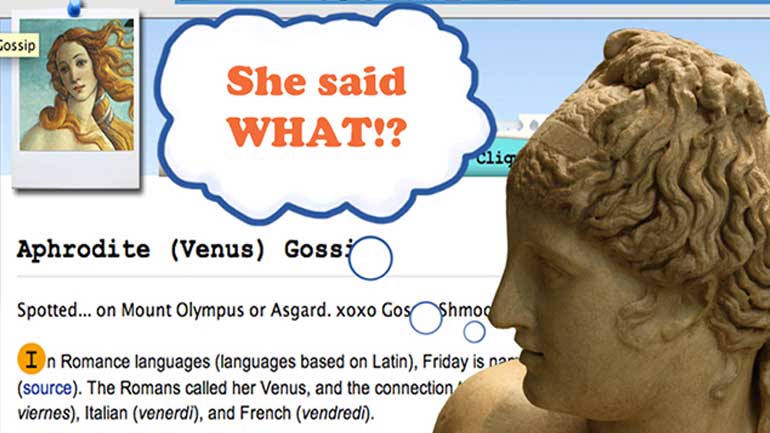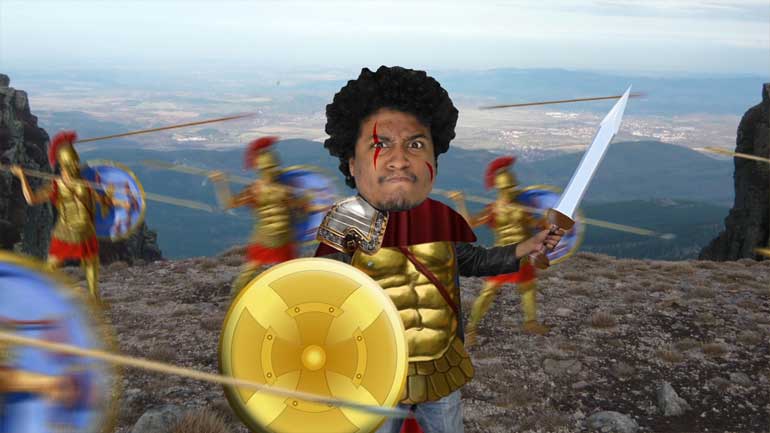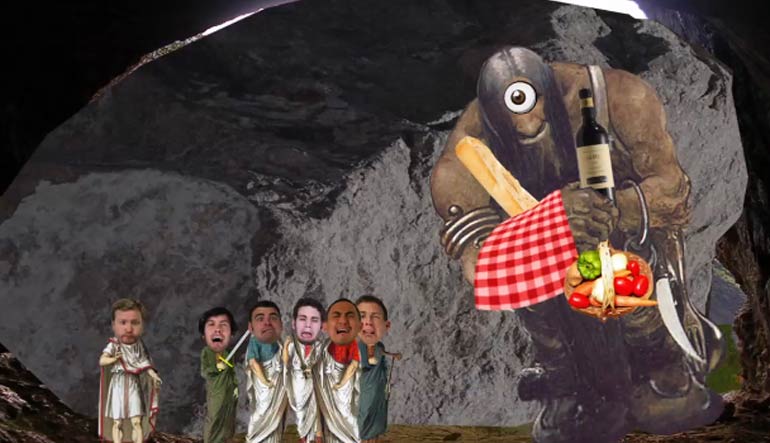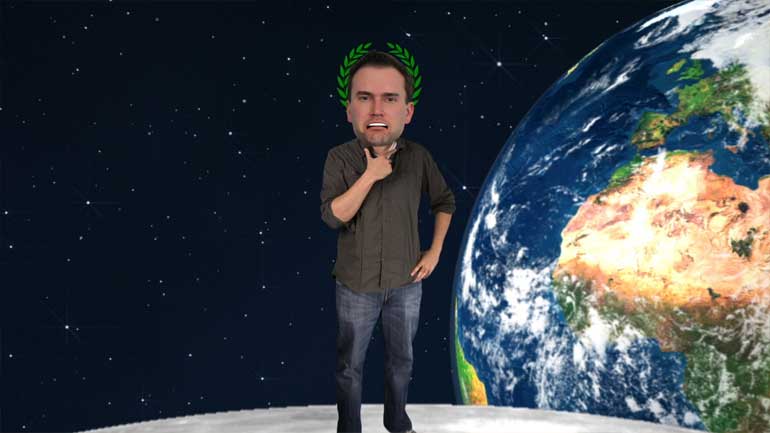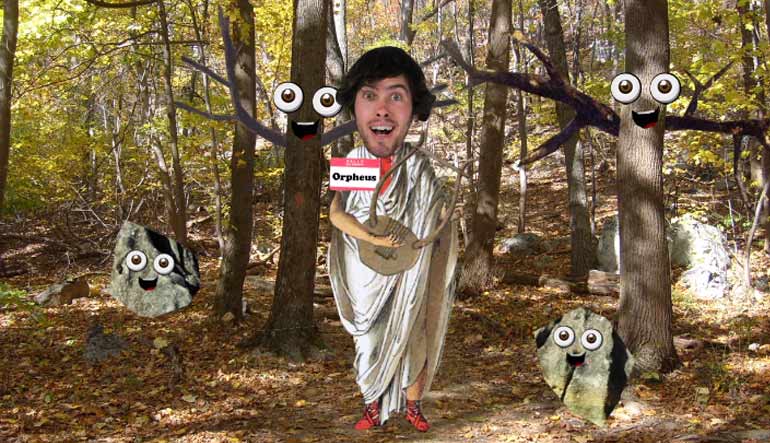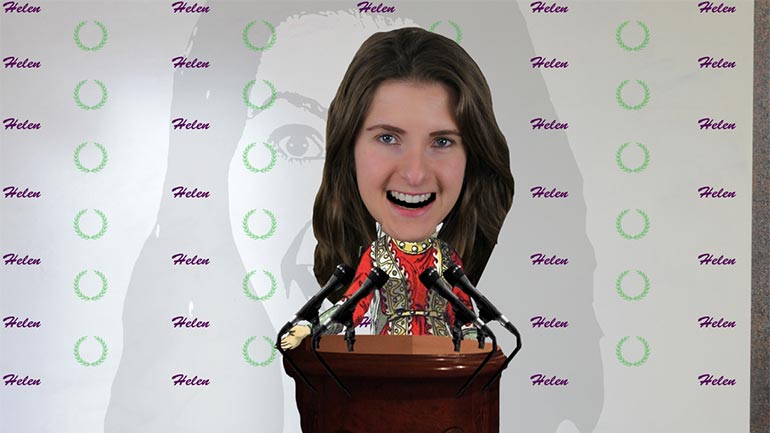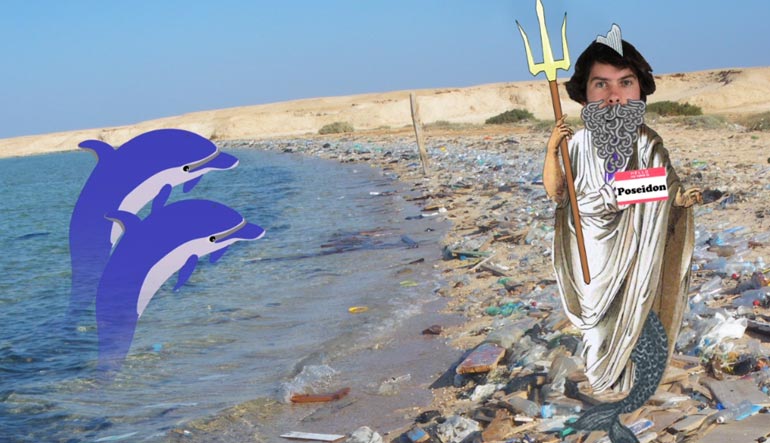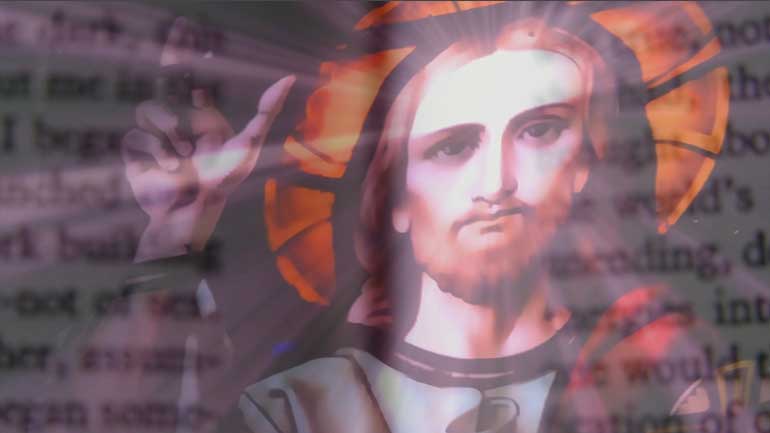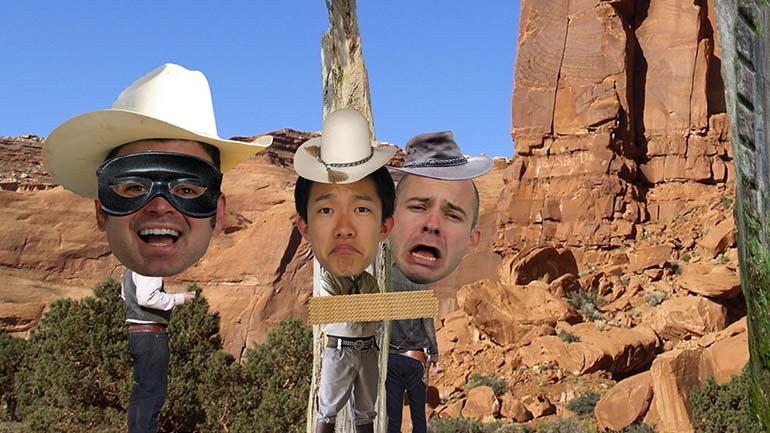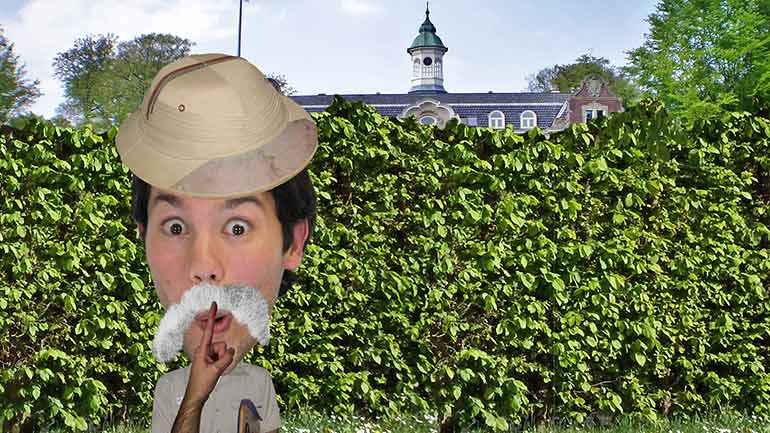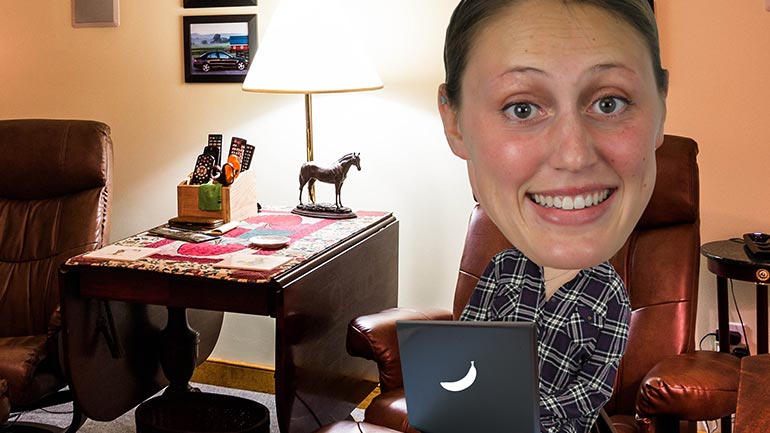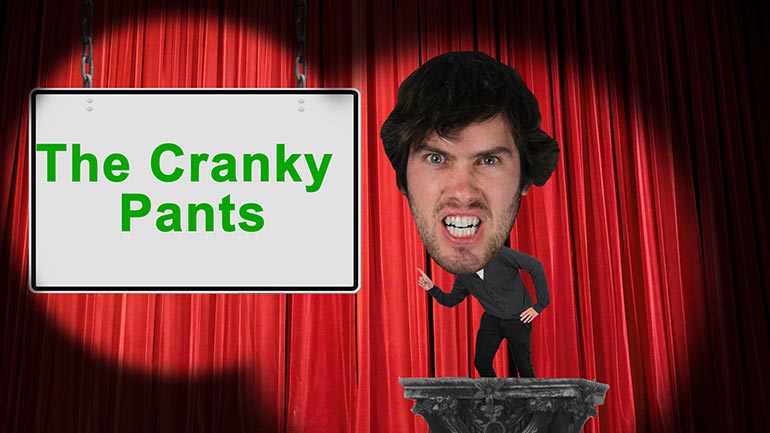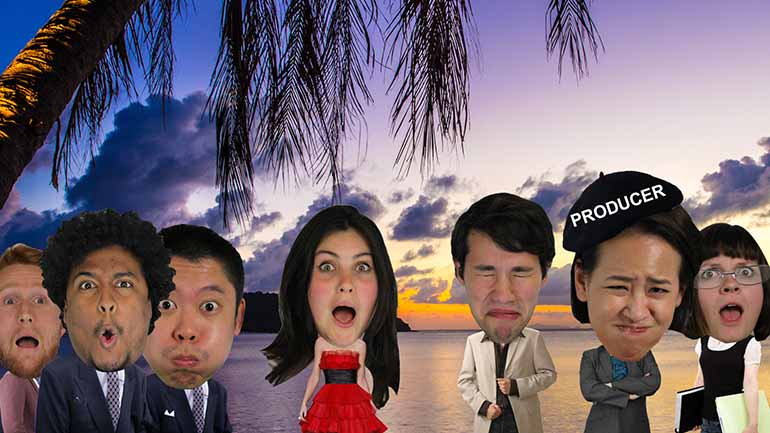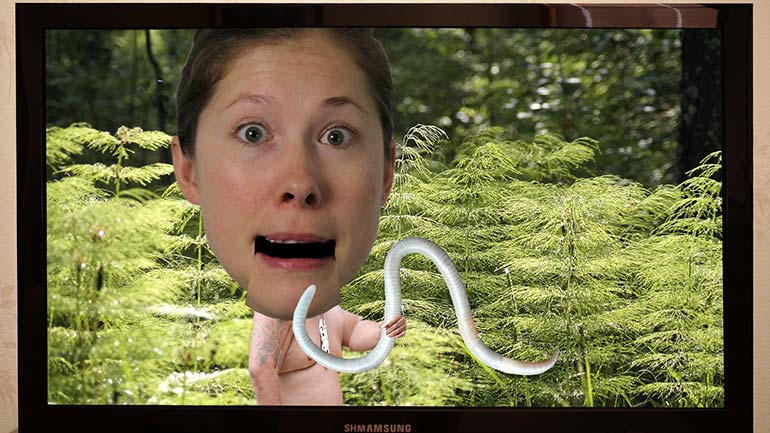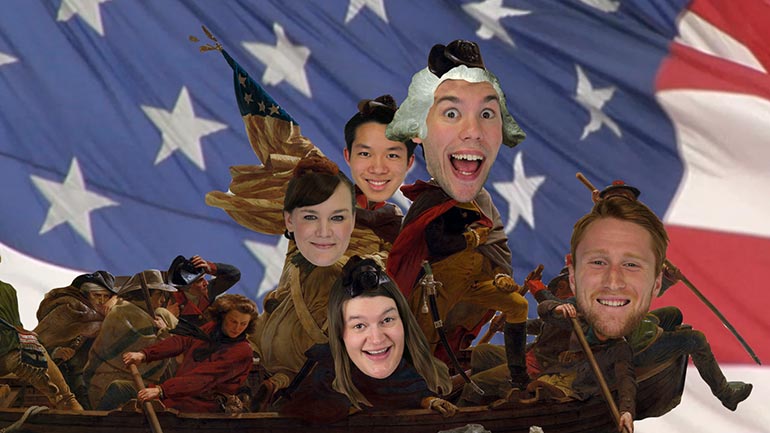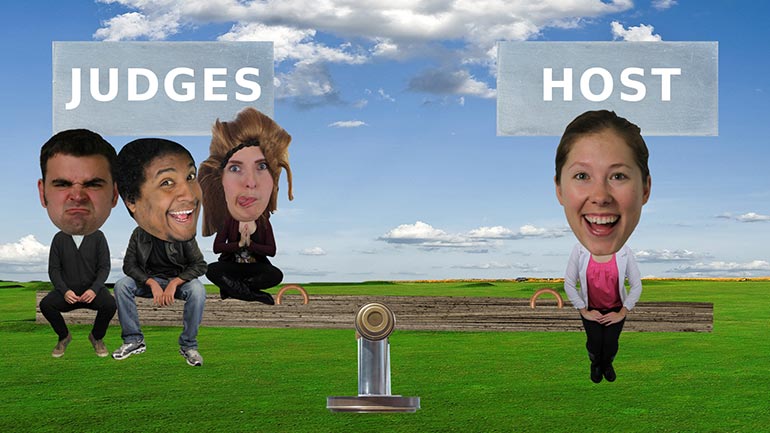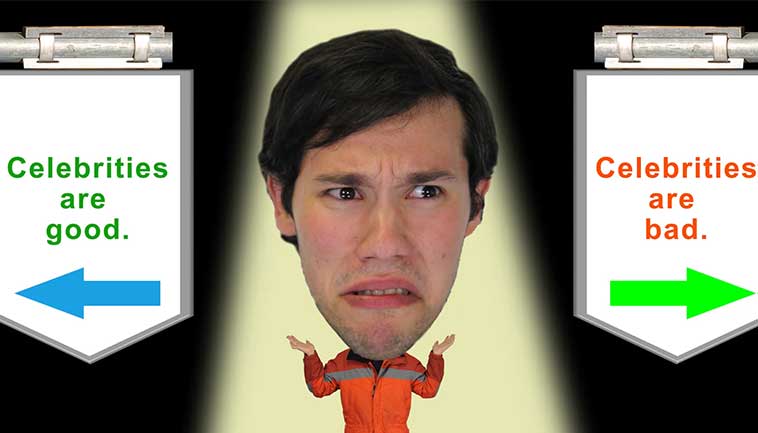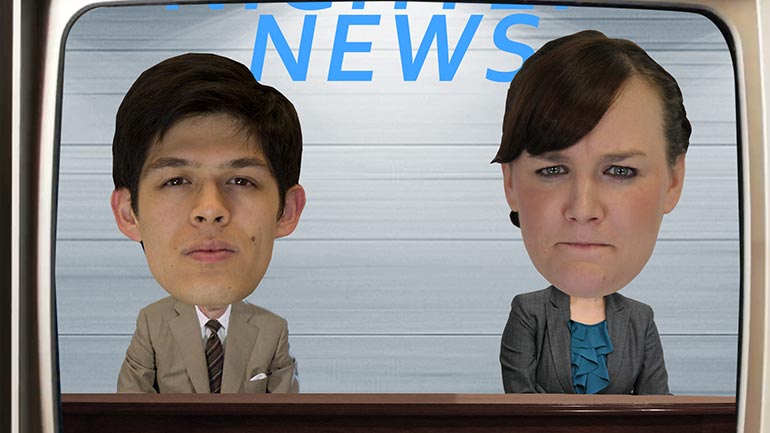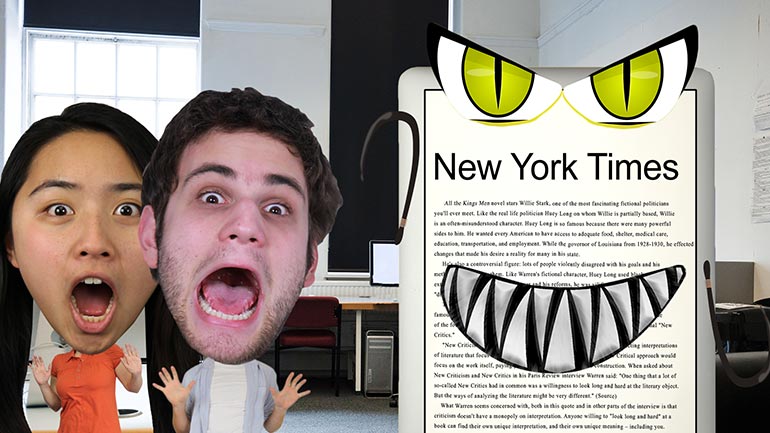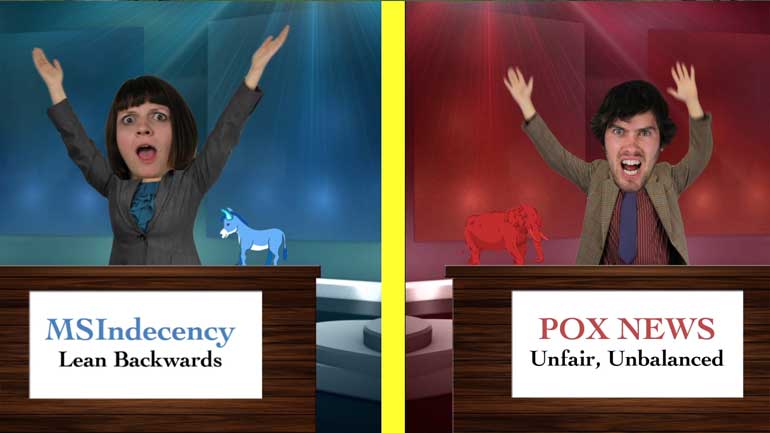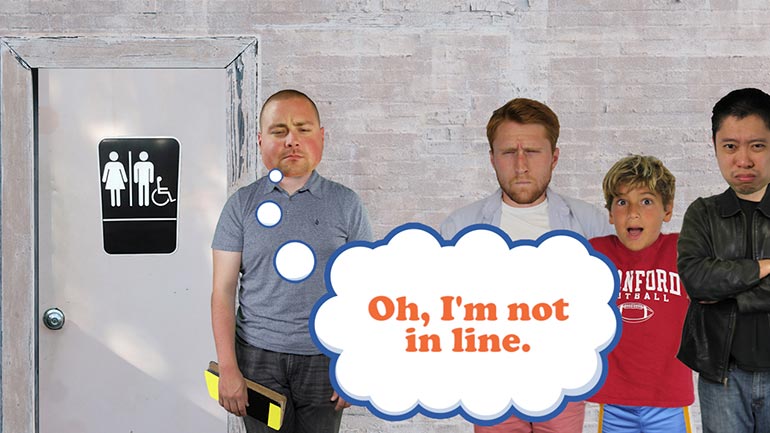ShmoopTube
Where Monty Python meets your 10th grade teacher.
Search Thousands of Shmoop Videos
Humanities Videos 55 videos
The gods and heroes battle it out with monsters in the best of mythology.
Today we aren't looking for the most virtuous person, or most likeable, but rather the most disturbing. Will it be Echo, the nymph who is doomed to...
Web Literacy: Sources 345 Views
Share It!
Transcript
- 00:01
We speak student!
- 00:06
Checking Sources on the Web
- 00:09
[ dog barks ]
- 00:10
What's the difference between a primary and a secondary source?
- 00:15
Let's use three examples.
Full Transcript
- 00:16
A primary source -- If you're studying, say,
- 00:19
Renaissance art.
- 00:21
A primary source is a work of Renaissance art.
- 00:24
It is Michelangelo painted something or sculpted something.
- 00:29
That is the primary source.
- 00:30
The secondary source is something that is written
- 00:33
about the primary source.
- 00:35
And it goes with texts, too.
- 00:37
A primary source might be a document from the government.
- 00:41
It might be John Hancock's signature.
- 00:44
A secondary source is something that is about that primary source.
- 00:47
"John Hancock was actually not the first person to sign it.
- 00:51
He just had the biggest signature."
- 00:53
Whatever that is. That's a secondary source.
- 00:55
Primary sources are the best to cite
- 00:58
because there's no -- It just is.
- 01:01
John Hancock's signature is big.
- 01:03
You're looking at it right there and you're saying,
- 01:06
"Hey, check it out. I'm looking at this."
- 01:07
It's basically as objective as you can get
- 01:10
because this is what exists.
- 01:11
But then the secondary source is gonna interpret that
- 01:13
and kind of give you more information about it or whatever.
- 01:16
And that can be trustworthy,
- 01:17
but you just have to make sure that there's no bias in it.
- 01:19
So you're looking at the primary source which is
- 01:21
what was created at the time at the scene.
- 01:24
And the secondary source is describing it.
- 01:25
And there's quality hierarchies
- 01:27
about secondary sources, meaning
- 01:29
if it was written contemporaneously with Michelangelo
- 01:32
and it was his uncle
- 01:34
who hung out with him and cleaned his shop
- 01:36
and he wrote about Michelangelo's work habits,
- 01:38
that's gonna carry a lot more weight than
- 01:39
a PHD writing about that 300 years later
- 01:43
when they have all kinds of gauze in front of them.
- 01:46
Exactly. And it's just kind of like a game of telephone, right?
- 01:47
Because that PHD student probably read
- 01:50
the things that the uncle said
- 01:52
about the piece of art.
- 01:53
That were repatriated by priests
- 01:55
who wrote it on lambskin
- 01:56
and then in 100 years, it burned down,
- 01:57
and someone else did that and they omitted every third word
- 02:00
to save space and so on.
- 02:01
So on the Internet, most of what you're reading is secondary sources.
- 02:04
We should say that.
- 02:05
But you can find primary sources on the Internet.
- 02:08
And, for example, if you're writing
- 02:10
an essay about how blogging has changed the way we write,
- 02:16
a blog is then a primary source
- 02:19
because that's the topic.
- 02:21
I might take so-and-so's blog about baking.
- 02:25
That's a primary source.
- 02:26
One of her blog entries. Or his.
- 02:28
[ laughs ]
- 02:29
But if I then read an article
- 02:31
called "Blogging in the 21st Century,"
- 02:34
that's a secondary source.
- 02:36
So primary sources don't have to be
- 02:37
from the Renaissance. They don't have to be from
- 02:39
early America. They can be contemporary primary sources.
- 02:43
But it depends on what your topic is.
- 02:45
If your topic is baking,
- 02:47
then the blog actually becomes a secondary source.
- 02:49
Because baking --
- 02:51
This isn't the blog entry about baking.
- 02:54
So depending on what your topic is,
- 02:56
different things become primary and secondary sources.
- 03:00
[ pen writing ]
- 03:02
What is credibility?
- 03:04
What are the four categories we deploy in determining credibility?
- 03:09
Why is it so important to understand objectivity?
- 03:13
Can Wikipedia be credible?
- 03:16
How can you check?
- 03:22
All right, next.
Related Videos
What's the difference between a real estate agent and a real estate broker? Is the latter just, uh... out of cash? Quite the opposite, in fact. Jum...
So... what's a TSA worker, and what do they do? Oh, we thought maybe you knew. Okay, okay... so TSA (or Transportation Security Administration) wor...
